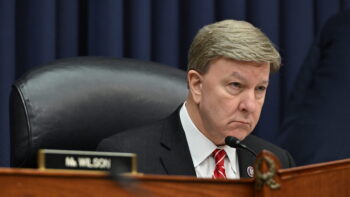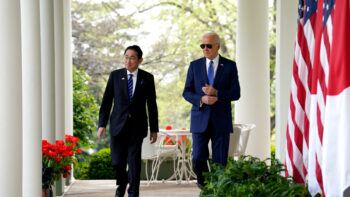 WASHINGTON: The American Civil Liberties Union, those card-carrying folks, have come straight out in opposition to CISPA, the House cybersecurity bill.
WASHINGTON: The American Civil Liberties Union, those card-carrying folks, have come straight out in opposition to CISPA, the House cybersecurity bill.
The ACLU cited the Obama administration’s “veto threat” in its statement, released soon after the 288-127 bipartisan vote in favor of the bill. But the administration’s veto threat is pretty squishy, if past Obama and Bush threats are any guide. The Office of Management and Budget Statement of Administration Policy says that, “…if the bill, as currently crafted, were presented to the President, his senior advisors would recommend that he veto the bill.” Usually that’s a warning shot meant to influence the final shape of the bill and usually means nothing happens.
The ACLU says the bill “allows companies to share customers’ personal information with any company or any government entity, including the National Security Agency.” Its authors say that the bill allows neutral information to be shared that does not violate a person or a company’s privacy. But the ACLU characterizes it very differently. It is “an extreme proposal that allows companies that hold our very sensitive information to share it with any company or government entity they choose, even directly with military agencies like the NSA, without first stripping out personally identifiable information,” Michelle Richardson, a legislative counsel at the ACLU’s Washington Legislative Office, said in a release.
One of the former top intelligence officials I know, who has held senior jobs in the executive branch and in industry, believes — ironically — that no agency is better at protecting Americans’ privacy than the NSA, noting the plethora of lawyers who oversee it and the intense training in privacy law, regulation and policy that NSA employees receive.
The bill moves to the Senate now, where it died last time. Senate leadership has been very quiet about who is working on the new bill, perhaps to make it harder for groups like the ACLU or the Chamber of Commerce — which opposed the Senate bill last time — to get to senators.
Australia unveils ‘historic’ defense boost to 2.4% of GDP in decade, but critics say too little, too late
Part of the shakeup includes tens of billions for nuclear-powered subs, and halting the pricey procurement of an additional F-35 fighter jet squadron.



























